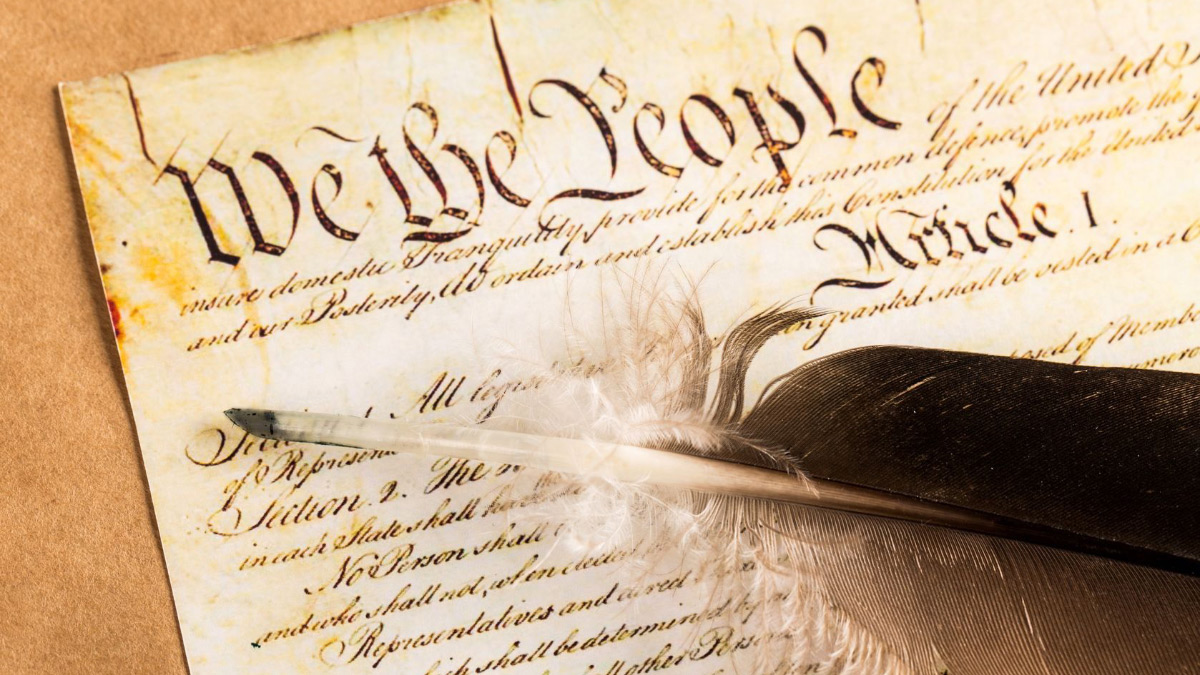In advance of Brett Kavanaugh’s September confirmation hearings, leading Democrats are reiterating accusations and rhetoric used last year against Neil Gorsuch’s nomination. In particular, a substantial list of Democratic Senators have publicly announced their opposition because he was “not in the mainstream” or failed to support certain precedents they like.
They have also gone further, dragging their feet by refusing to meet with him and demanding unheard of mountains of paperwork (after announcing their opposition) to overwhelm processing resources until after the midterm election.
However, rather than focusing on the political rhetoric and gamesmanship, there is a more relevant standard for Kavanaugh’s nomination. Supreme Court justices pledge to defend the Constitution. Consequently, far more relevant than any partisan tricks are our founders’ views of American government under the Constitution. So it seems worthwhile to consider what they would say if they comprised the Senate Judiciary Committee, rather than its current members.
Samuel Adams: “The liberties of our country, the freedom of our civil constitution ... it is our duty to defend them against all attacks ... to maintain the rights bequeathed to us.”
Patrick Henry: “Liberty ought to be the direct end of your government.”
James Wilson: “Government ... should be formed to secure and enlarge the exercise of the natural rights of its members; and every government which has not this in view as its principal object is not a government of the legitimate kind.”
Thomas Jefferson: “A sound spirit of legislation ... banishing all arbitrary and unnecessary restraint on individual action, shall leave us free to do whatever does not violate the equal rights of another.”
Richard Henry Lee: “It must never be forgotten...that the liberties of the people are not so safe under the gracious manner of government as by the limitation of power.”
James Madison: “The powers of the federal government are enumerated ... it has legislative powers on defined and limited objects, beyond which it cannot extend its jurisdiction.”
Thomas Paine: “A constitution is not the act of a government but of a people constituting a government ... All delegated power is a trust, and all assumed power is usurpation.”
Alexander Hamilton: “A limited Constitution ... can be preserved in practice no other way than through the medium of courts of justice, whose duty it must be to declare all acts contrary to the manifest tenor of the Constitution void. Without this, all the reservations of particular rights or privileges would amount to nothing ... To deny this would be to affirm ... that men acting by virtue of powers may do not only what their powers do not authorize, but what they forbid.”
James Otis: “An act against the Constitution is void.”
Joseph Story: “The Constitution of the United States is to receive a reasonable interpretation of its language and its powers, keeping in view the objects and purposes for which those powers were conferred.”
George Mason: “Flagrant violations of the Constitution must disgust the best and wisest part of the community.”
Mercy Otis Warren: “Any attempt [to] subvert the Constitution ... cannot be too severely censured.”
John Taylor of Caroline: “Every innovation which weakens the limitations and divisions of power ... makes [government] strong for the object of oppression.”
Benjamin Franklin: “An equal dispensation of protection, rights, privileges, and advantages, is what every part is entitled to.”John Dickinson: “We cannot be free, without being secure in our property ... we cannot be secure in our property, if, without our consent, others may, as by right, take it away.”
George Washington: “[Government] has no more right to put their hands into my pockets, without my consent, than I have to put my hands into yours.”
John Adams: “The moment the idea is admitted into society that property is not as sacred as the laws of God, and that there is not a force of law and public justice to protect it, anarchy and tyranny commence ... ‘Thou shalt not covet’ and ‘Thou shalt not steal’ ... must be made inviolable precepts in every society before it can be ... made free.”
America’s founders clearly revealed that their central purpose was defending our rights and liberties against encroachment, especially from overbearing government. Maintaining that protection is the Supreme Court’s primary function. Therefore, that is the core criterion for evaluating Judge Kavanaugh, or any other nominee, for the task of preserving and protecting the highest law of the land.








